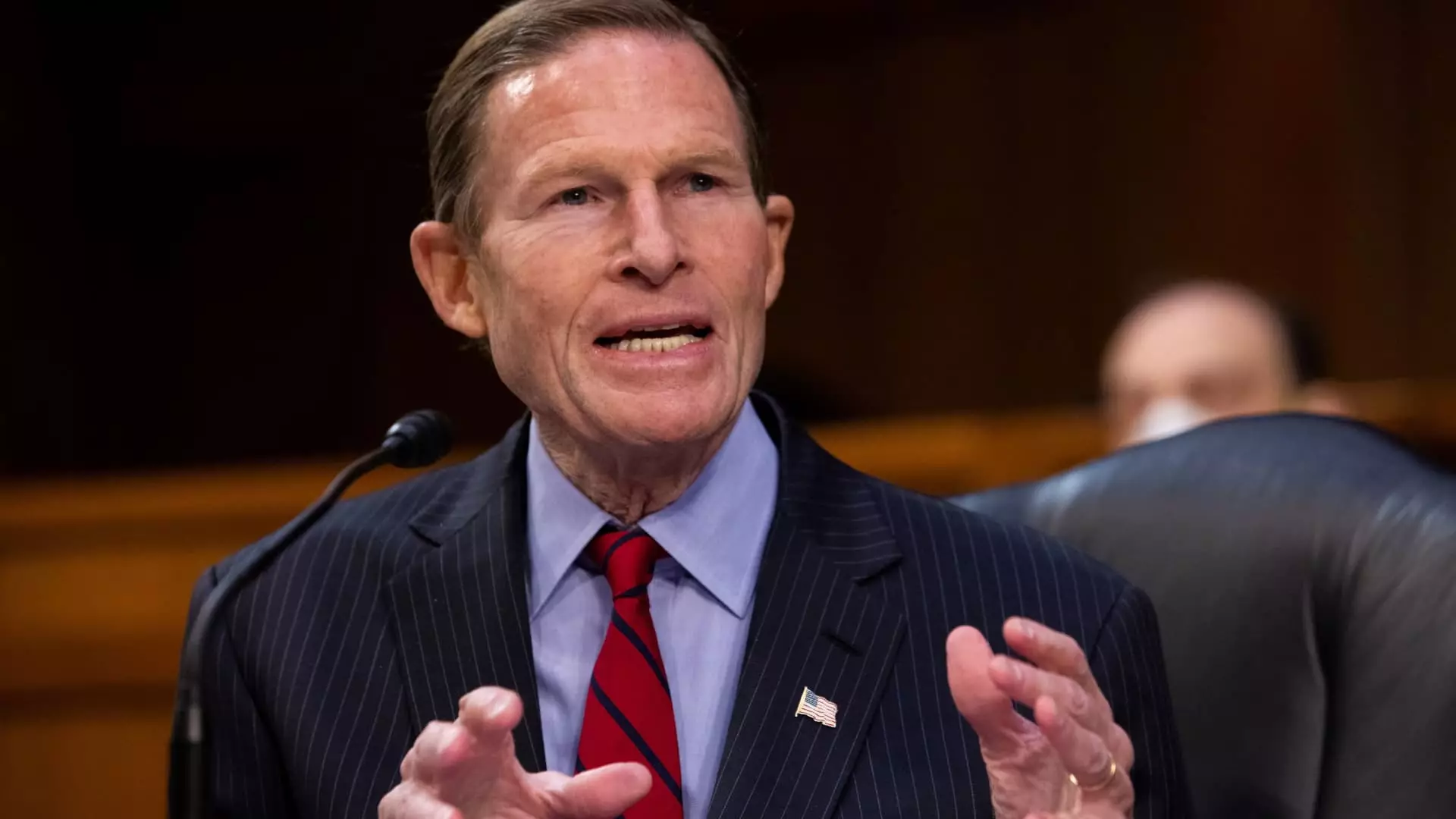The recent engagement between Visa and Elon Musk’s social media platform, X, not only raises eyebrows but also sparks urgent questions about financial accountability and ethical conduct. Senator Richard Blumenthal, a Democrat from Connecticut, has taken the initiative to question Visa’s partnership with Musk in light of his controversial actions surrounding consumer finance regulations. Blumenthal’s inquiry is not merely a political maneuver; it underscores a broader worry about the implications of merging social media with financial services—an intersection that, when mishandled, could lead to significant consumer risks.
Elon Musk: A Troubling Influence
Elon Musk’s burgeoning influence intriguingly straddles both technology and government, particularly with his recent role in dismantling parts of the Consumer Financial Protection Bureau (CFPB). This development has catapulted him into the spotlight as a leader who has sidestepped conventional safeguards designed to protect consumers, raising fears that Visa is entering a Faustian bargain. How can a major financial entity such as Visa align itself with someone who has shown a blatant disregard for consumer rights? The concerns are palpable, and the oversight mechanisms, already fragile, stand to become even weaker under Musk’s memorandum of operations.
A Cloud of Fraud and Deceit
Blumenthal’s scrutiny extends to the very nature of X itself, a platform marred by “bots, scams, and hate speech.” This is crucial because any financial service that doesn’t prioritize consumer protection will inherently be an invitation for fraud. If X, with its precarious reputation, becomes a conduit for financial transactions, it risks transforming from a social network into a breeding ground for financial crime. The Senator’s admonishment of Visa to ensure that its network is free from financial malpractice reverberates as a necessary cautionary tale. Can a platform so riddled with deception effectively manage a digital wallet that handles peer-to-peer payments?
Questions About Compliance and Ethical Responsibility
As Visa prepares to bridge the gap between a social platform and a financial service, the legal and ethical responsibilities of the company come heavily into question. Senator Blumenthal has rightfully demanded a meticulous breakdown of how Visa intends to not only facilitate payments on X but also comply with stringent regulations regarding money laundering and other illicit financial activities. The implications of failing to address these concerns cannot be overstated; a lapse could potentially result in a profound public trust deficit and regulatory backlash. Visa, as the world’s largest payment processor, has a duty to keep its operations transparent and grounded in sound ethical practice.
Scandals and Accountability in the Tech World
The intersection of technology and finance is poised for upheaval, yet it hasn’t been handled with the foresight required to protect consumers. The convergence of Musk’s volatile leadership and Visa’s financial muscle could yield a dangerous cocktail that prioritizes profit over ethical standards. By allowing this partnership to progress without thorough checks, not only is the potential for regulatory breaches heightened, but the very foundations of consumer trust are jeopardized. It’s time for a serious dialogue around corporate accountability—especially when powerful players like Visa align with controversial figures like Musk. If this partnership is not approached meticulously, it may lead us down a path that neither consumers nor ethical financial practices can afford to traverse.

